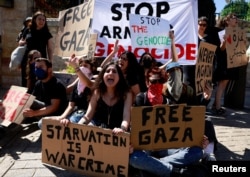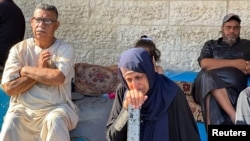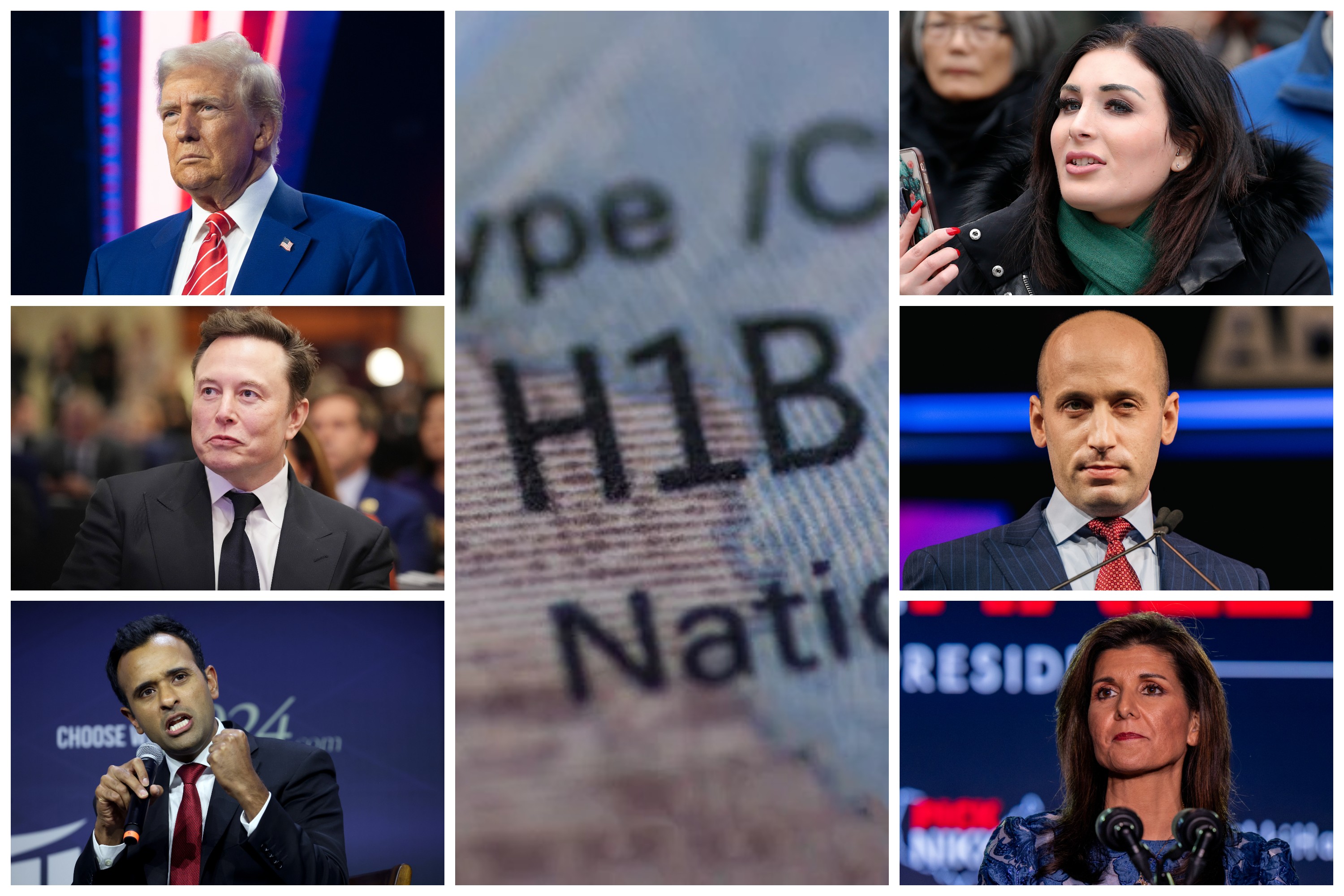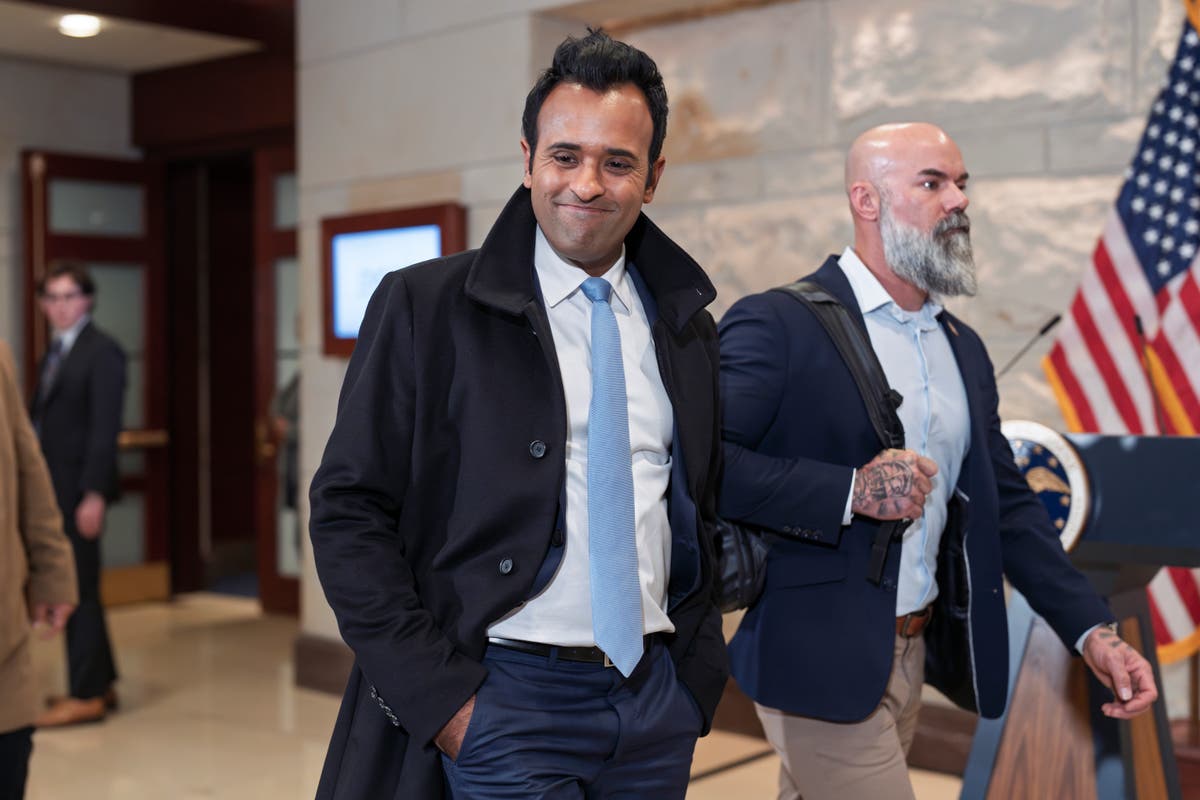World
World reacts to UN court’s ruling that Israel should halt Gaza offensive
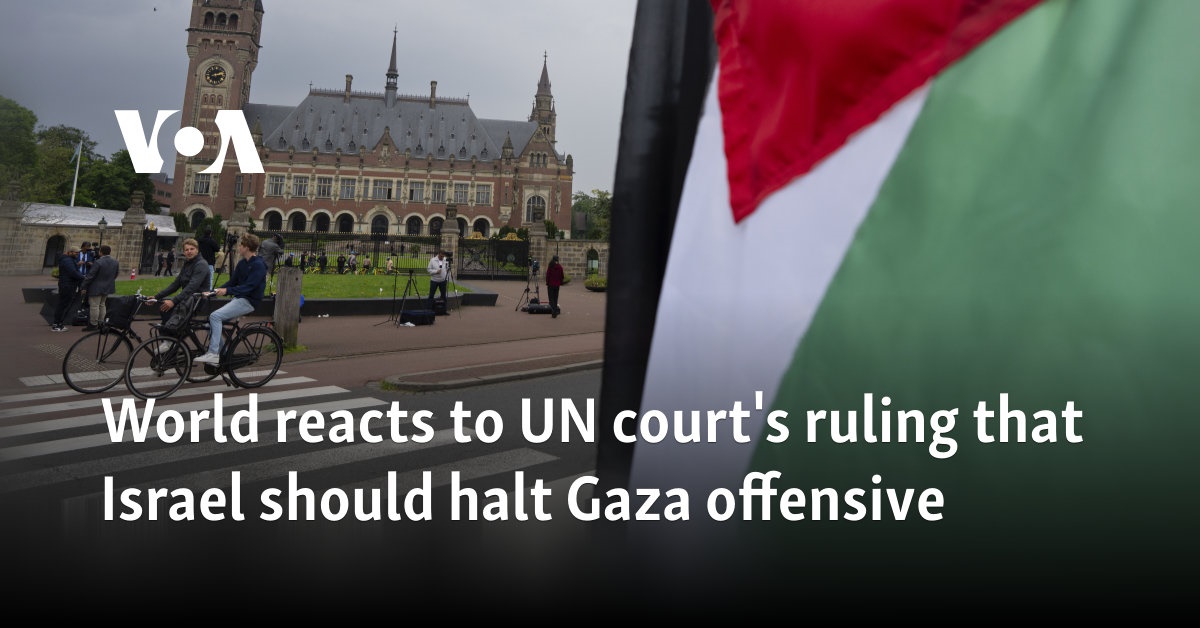
World leaders reacted to a ruling Friday by the U.N. International Court of Justice that Israel should “immediately halt its military offensive” in the southern Gaza city of Rafah. The decision intensifies international pressure on Israel regarding its assault on Gaza, but Israel has said it will not comply.
Reading the ruling, ICJ President Nawaf Salam cited “exceptionally grave” conditions for the “extremely vulnerable” population in Rafah.
He also expressed the court’s doubts that Israel’s evacuation of civilians from the border city are adequate to “alleviate the immense risk” the civilians are facing there.
In a joint statement, the offices of Israel’s prime minister and foreign ministry slammed the court’s decision, calling South Africa’s accusations against Israel at the International Court of Justice in The Hague regarding genocide “false, outrageous and disgusting.”
Minister Benny Gantz, a member of Israel’s war Cabinet, responded to the ICJ decision by telling Israeli media that the military would keep fighting to return the nation’s abductees and ensure the safety of its citizens.
“We will continue to act according to international law in Rafah and wherever we operate and make an effort to avoid harming the civilian population, not because of the Hague tribunal — but first of all because of who we are,” he said.
The court’s announcement comes a week after South Africa filed a case accusing Israel of genocide and requesting an emergency measure in Rafah to ensure the survival of the Palestinians.
The ICJ is the highest U.N. body for hearing disputes between states. Its rulings are final and binding, but they have been ignored in the past because the court has no enforcement powers.
Its decision, however, adds more diplomatic pressure on the Israeli government.
Richard Gowan, of the International Crisis Group, told VOA the ICJ ruling may allow the U.S. to put more pressure on Israel and Israel “may try and win back a little goodwill by allowing some more aid into Gaza.”
But “I think that the Israelis have made it very clear all through the year that they will ignore any calls for restraint from the International Court of Justice,” he added.
South Africa’s international relations department on Friday hailed the ruling.
“South Africa welcomes the ruling made by the court today,” said Zane Dangor, director-general of the country’s Department of International Relations and Cooperation. “This is de facto calling for a cease-fire. It is ordering the major party in this conflict to end its belligerent action against the people of Palestine.”
Jordan’s Foreign Minister Ayman Safadi also hailed the ICJ’s decision.
“Once again, the ICJ exposes Israel’s war crimes in Gaza. And once again, the Israeli government reacts with disdain to international law, refusing to heed the court’s orders,” he said.
The European Union foreign policy chief, Josep Borrell, also reacted to the ruling. “What is going to be the [EU’s] answer to the ruling of the International Court of Justice that has been issued today? What is going to be our position? We will have to choose between our support to international institutions of the rule of law or our support to Israel.”
This week alone, three European countries announced they would recognize a Palestinian state — Ireland, Spain and Norway.
Israel has previously described the ICJ’s case against its assault on Gaza as “divorced from the facts.” It has repeatedly dismissed the accusations of genocide as baseless, stating that its offensive in Gaza is self-defense and targets Hamas militants, who attacked Israel on October 7.
An Israeli government spokesperson said on the eve of Friday’s decision that “no power on Earth will stop Israel from protecting its citizens and going after Hamas in Gaza.”
A Palestinian Authority spokesperson, Nabil Abu Rudeineh, welcomed the court’s decision, saying it “represents an international consensus on the demand to stop the all-out war on Gaza.”
Hamas issued a statement welcoming the decision but told Reuters the ruling fell short of recognizing that other parts of the enclave are under attack.
“We believe it is not enough since the occupation’s aggression across the Gaza Strip, especially in northern Gaza, is just as brutal and dangerous,” senior Hamas official Basem Naim said.
The United States, Israel’s main ally, has opposed Israel’s invasion of Rafah, where more than a million refugees were sheltering from clashes elsewhere. Some 900,000 have since fled Rafah, according to the Israel military.
On the battlefront, Israeli forces intensified their bombardment on Rafah on Friday, residents and medics said.
Some information for this report came from The Associated Press, Agence France-Presse and Reuters.

